Professor at University College London and Founding Director of the UCL Institute for Innovation and Public Purpose
It will present the evidence and the pathways for changes in policy, business approaches and global collaboration to support climate and water justice, sustainability, and food-energy-water security.
The Commission is convened by the Government of the Netherlands and facilitated by the Organisation for Economic Co-operation and Development (OECD). It was launched in May 2022 with a two-year mandate. The GCEW is executed by an independent and diverse group of eminent policy makers and researchers in fields that bring novel perspectives to water economics, aligning the planetary economy with sustainable water-resource management. Its purpose is to make a significant and ambitious contribution to the global effort to spur change in the way societies govern, use and value water.
The group will develop the new thinking on economics and governance required to lead countries out of the current impasse. The Commission is composed of experts, community leaders and practitioners from a broad range of science, policy and front-line practice expertise from all regions of the globe, bridging disciplines, cultures and worldviews.
As such, it is uniquely positioned to change the equation on water and raise awareness, promote better policies and implementation plans, building coalitions and stimulating action that will restore the hydrological cycle, improve access to water services and boost well-being.
Completing the sustainability trilogy that began with the Stern Review on the economics of climate change (released in 2006) and the Dasgupta Review on the economics of biodiversity (issued in 2021), the GCEW will provide a fundamental reassessment of the way we manage and value water, and water’s intrinsic role in addressing climate change and other global challenges.
The Commission’s first report will be launched on 22 March at the UN 2023 Water Conference and inform the launch of a “Pact for Voluntary Commitments”.
The work of the GCEW entails a two-year process, with societal dialogues and calls for evidence. This will ensure a wider audience is reached and the supporting material to work with is robust and up to date, and the coalitions for action are genuinely global. The work combines three pillars: analytics, societal dialogues and an action agenda.
The work of the GCEW entails a two-year process, with societal dialogues and calls for evidence. This will ensure a wider audience is reached and the supporting material to work with is robust and up to date, and the coalitions for action are genuinely global. The work combines three pillars: analytics, societal dialogues and an action agenda.
Societal dialogues are designed to engage with a range of communities to ensure that:
Societal dialogues will be designed for the next generation constituencies, Indigenous peoples and labour. They will also be designed for private sector audiences, including the finance community, and the food value chain.
The GCEW seeks to design mutually reinforcing action pathways that build change and grow the constituency of support for the preservation of the water cycle. To do so, an action agenda will be derived from the analytical dynamics throughout the Commission process and the engagement with people in institutions who can ignite change.
From this perspective, the GCEW will provide important inputs to the UN 2023 Water Conference, which is co-chaired by the Kingdom of the Netherlands and the Republic of Tajikistan. It will also take forward the Conference outcomes through societal dialogues in 2023 and deliver a final report in 2024.
Climate change and deforestation are reshaping the monsoon, causing ice on the Tibetan plateau to melt, affecting freshwater supplies to over a billion people. Rising global temperatures are changing evaporation patterns and reducing moisture feedback from forests, disrupting downwind rainfall in Latin America and Africa.
A destabilised global water cycle is aggravating climate change across the world, narrowing a window of opportunity for action.
Water-use restrictions, power cuts, and other stopgap measures can no longer conceal the fact that our policies and institutions to manage water are not suited for a world of unsustainable consumption, expanding vulnerability and global environmental change.
All our current arrangements rest on the assumption, that the local and regional supply of water is relatively stable, predictable and manageable. This is no longer true. Humanity is now in the midst of a global water crisis, around which the cost of inaction is unbearable, for both the Global North and the Global South.
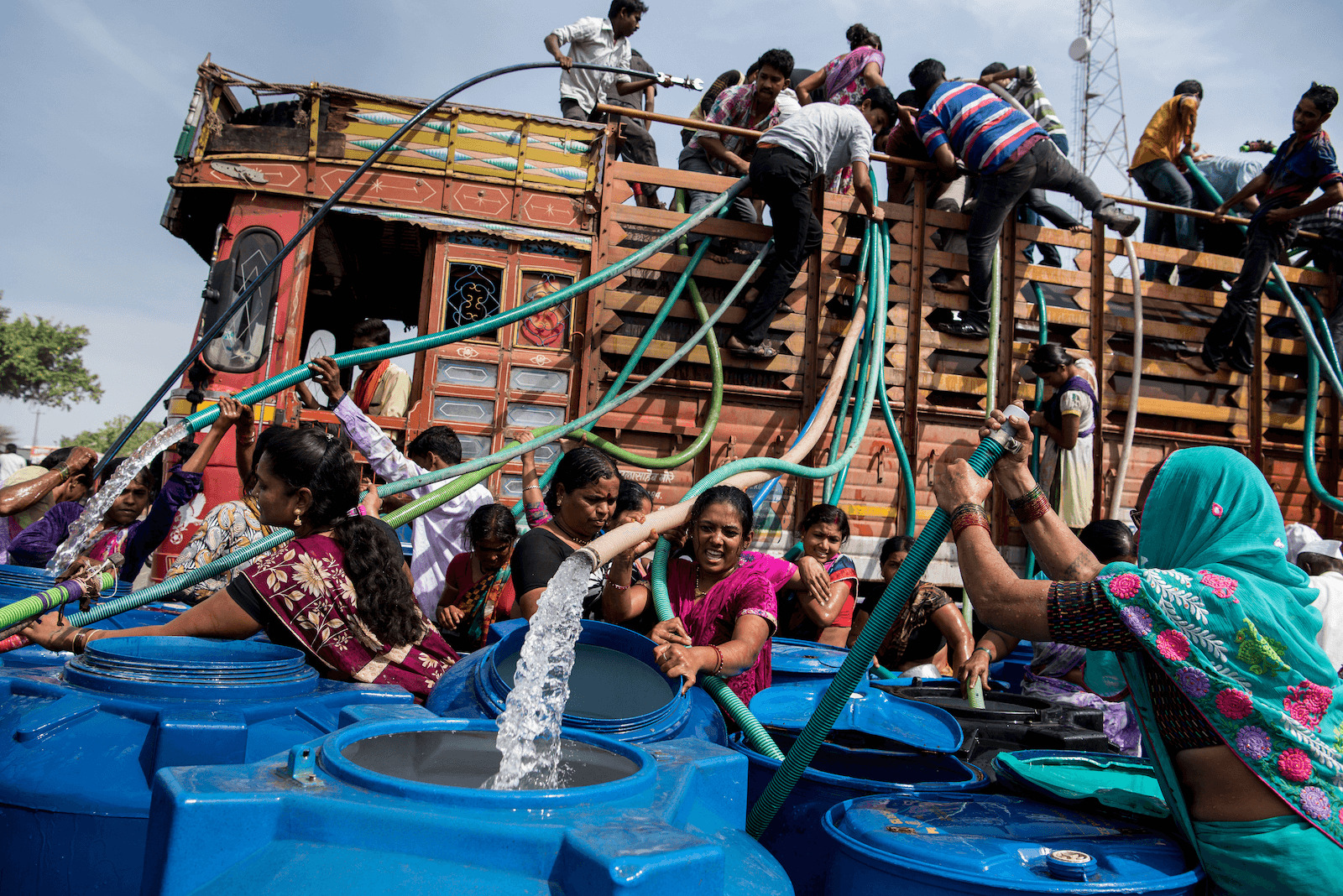
We must recognise that all our key sustainable development challenges are connected to water, from poverty reduction, and inclusive growth to sustainable livelihoods – whether there is too much or too little water, or whether it is too polluted for human use.
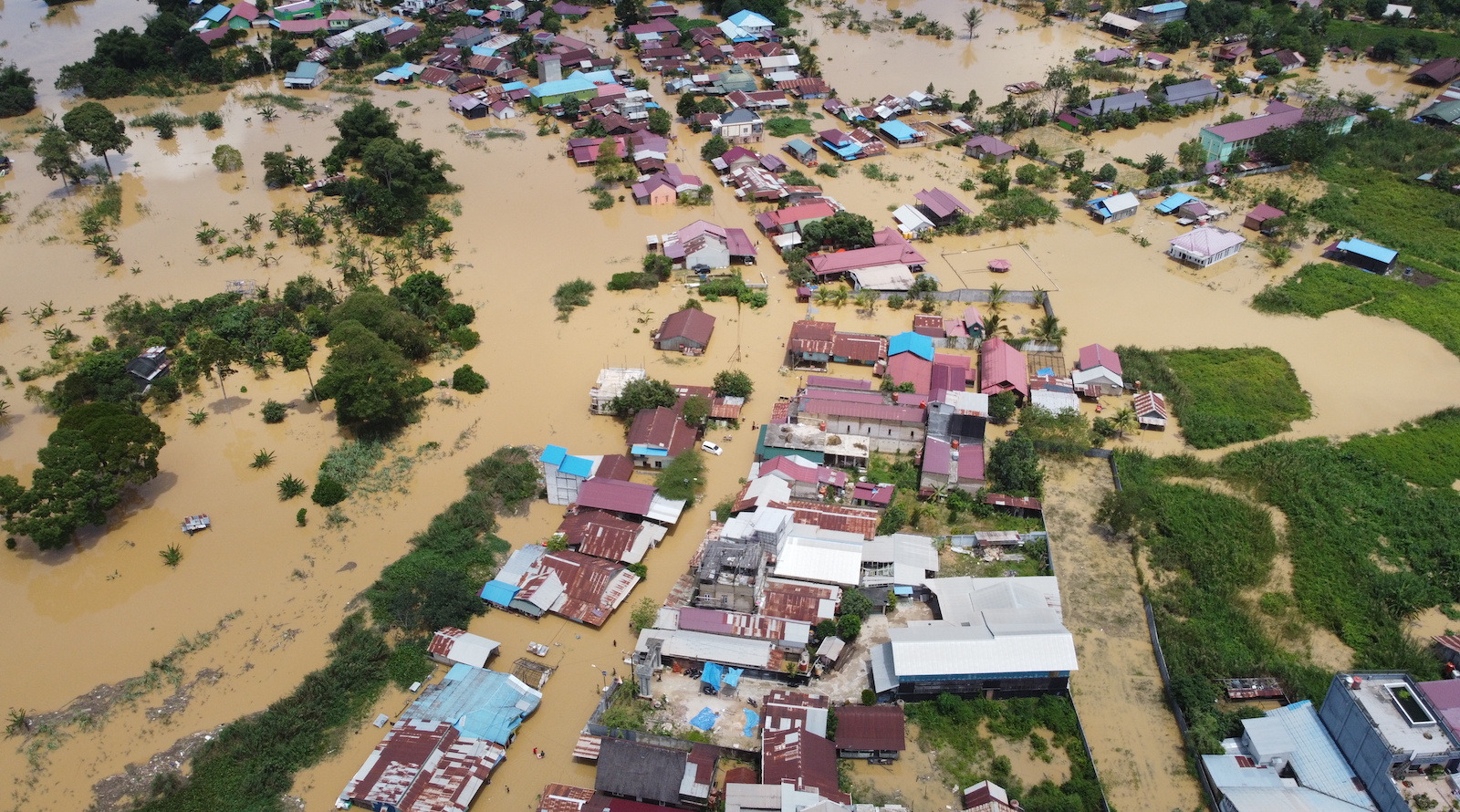
The task now is to properly define, value, and govern water as a global common good, based on a better understanding of the links between water, economic development, climate change and biodiversity loss. Thinking about water in this way will allow us to mobilise urgent collective action and design new rules that put equity and justice at the center of our response to a local to global emergency.
Water can be the lever and catalyst of a new development model, based on more equitable premises, as well as a better stewardship of nature. These solutions will require a long period of large investments, with high levels of mobilised finance.
This will only happen if the right enabling conditions are in place and all stakeholders handle collective action strategically.
Top image: The Rhine river in Cologne, Germany, with low water levels due to drought in July 2022.
The Co-Chairs lead and set the direction for the Commission.
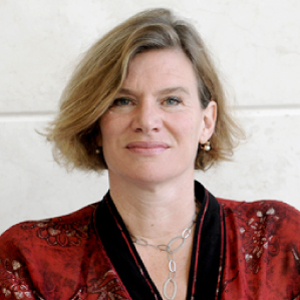
Professor at University College London and Founding Director of the UCL Institute for Innovation and Public Purpose
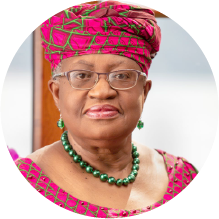
Director-General, World Trade Organization

Director, Potsdam Institute for Climate Impact Research

President,
Republic of Singapore
This group of eminent individuals provide critical reflection and ensure global relevance of the Commission (regional representation), inclusiveness (including youth, indigenous people), and capacity to reach out to communities of practice (local authorities, financiers, corporates, civil society).
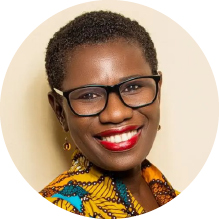
Mayor of the City of Freetown, Sierra Leone , and Co-Chair, C40 Cities
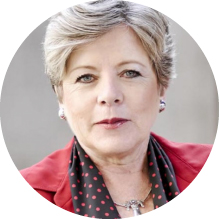
Minister of Foreign Affairs, Mexico

Chief Economist, Sustainable Development Vice Presidency, World Bank
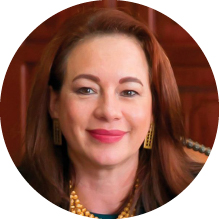
Former President of the UN General Assembly, Former Minister of Foreign Affairs of Ecuador
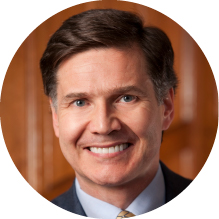
Professor, Environmental Law and Policy, Yale Law School
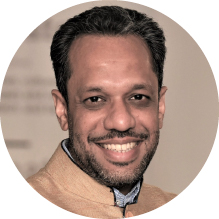
CEO, Council of Energy, Environment and Water, New Delhi, India
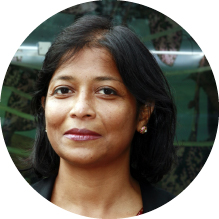
Professor, Faculty of Social and Behavioural Sciences, University of Amsterdam

Executive Vice President and Director, Center for Global Commons, University of Tokyo

Founder, China’s Institute of Public & Environmental Affairs (IPE)

Executive Director, Global Commission on the Economics of Water, and Former First Special Envoy for International Water Affairs, Kingdom of The Netherlands
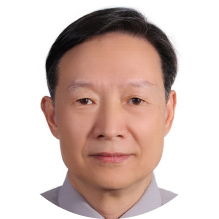
President, Chinese Society for Urban Studies
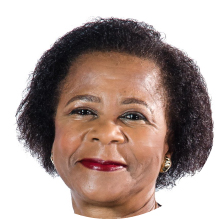
Emeritus President, Club of Rome, South Africa; Co-Founder of Reimagine SA, Chair, Global Compassion Coalition; Chair, Archbishop Desmond Tutu Intellectual Property Trust
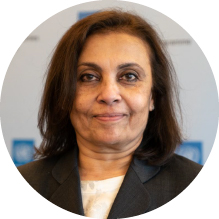
Former Under-Secretary-General and Associate Administrator, United Nations Development Programme
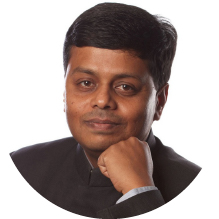
Director, Indian Institute for Human Settlements

Executive Secretary, International Whaling Commission Secretariat, and Former Secretary-General, Ramsar Convention on Wetlands
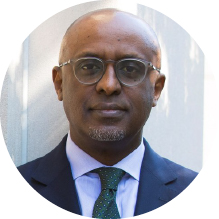
Director, African Department, International Monetary Fund

Founding Director, Bibliotheca Alexandrina, Alexandria, Egypt

Director for the Environment Directorate, OECD
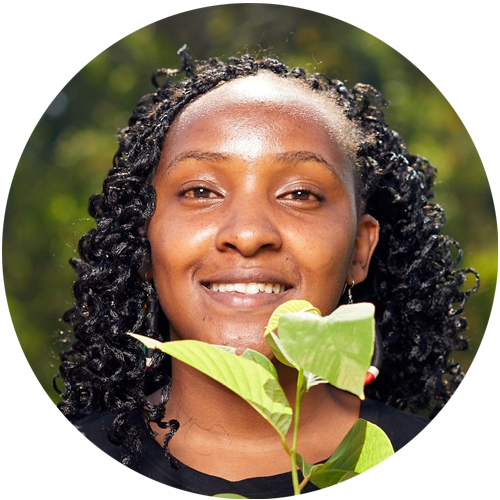
Founder, Green Generation Initiative